
Welcome to the Poetry Friday roundup!
To celebrate National Poetry Month, I brought back my popular writing prompt contest #PoetryCUBED and have been receiving lots of great poems. Keep sending them in! I’ll share more entries next week, but today I have a special guest: friend and fellow children’s writer Leslie Bulion!
Leslie is a fellow New Englander who lives in Connecticut, and has been writing nearly all her life. Like me, she began writing poetry for her own enjoyment since fourth grade and has been interested in science and nature for as long as she can remember. You can imagine, then, how surprised I was that I’d yet to invite her to visit the ol’ Triple-R!
Leslie earned graduate degrees in Oceanography and Social Work, and worked as a medical social worker and school social worker. Her first book, Fatuma’s New Cloth (Moon Mountain Publishing) won the 2003 Children’s Africana Book Award for best picture book, and since then she’s published 16 books, from poetry collections to middle grade novels.
Thanks so much for visiting, Leslie! Time certainly does fly, as we’ve known each other for nearly 11 years now. We first met online around 2010 or so, and then met in person at my first New England SCBWI conference in Mass. in 2011. (That was a momentous year for me, as I met not only you but also Jane Yolen, Lin Oliver, my former neighbor Tomie dePaola, Lee Bennett Hopkins, and myriad others!)
Since then, we’ve each had multiple books published and it’s been wonderful getting to know you, following along your writing career and conversing about children’s publishing. And now you’re celebrating your sixteenth book, with Serengeti: Plains of Grass! I know you have an affinity for both science and poetry, but this book is unique in many ways from your previous collections. Before we get to that, though, please tell me how the idea for the book came to you.
Thank you very much for inviting me to your blog, Matt! I’m thrilled to share a bit of the backstory of how I came to write Serengeti: Plains of Grass.
I have been wondering about and dreaming of revisiting the Serengeti since my daughters, my husband, and I were invited to East Africa by his sister years ago. I kept extensive journals during that month-long visit, and took countless photographs. Among many important experiences—in cities and towns, and with families and friends, and in other parks—our short time in the Serengeti left a deep impression. It took many years for me to find this path I finally chose to explore the Serengeti through poetry.
Now, the reason I say this book different is because many of your recent books have been poetry collections about specific subjects within an overarching theme: for example, Hey There, Stink Bug (Charlesbridge, 2006) included poems about different insects while Superlative Birds (Peachtree, 2019) featured poems about specific birds.
But with Serengeti, each poem on each spread reads as if it’s part of a larger whole; that is, the poems can be taken individually, but are meant to be linked together and read in a more traditional picture book style. How did you come to decide on this structure?
I’m so glad you mentioned themes, Matt. My poetry collections are organized in many layers. Each has what I refer to as a “big idea.” In Superlative Birds, for example, the big idea is a tour of the traits of “birdness,” the specific poems showcase the “world-record holder” of each trait, and readers follow the chickadee spokesbird to find out which traits belong only to birds.
In Leaf Litter Critters (Peachtree 2018), I set the stage for Serengeti by using poetry to explore a whole ecosystem. I consider that book a “hybrid” of sorts, since it takes readers through the decomposer/recycler food web employing many different poetic forms and lots of humor as I had done in previous (and subsequent) books.
Serengeti IS different. Readers join the great migration of wildebeests, zebras, and others as they follow the early winter rains into and out of the Serengeti short-grass plain. The stanzas tell another story, too: the movement of energy through the food web from grass to herbivores, insectivores, carnivores, scavengers, recyclers, and back to grass again.
Just as all life in the Serengeti is interconnected, the stanzas and spreads in the book link one to the next, and end with a refrain, a reference to “grass,” to emphasize the basis of this open plain ecosystem.
Speaking of the book’s structure, you eschew your penchant for varying poetic styles/forms and instead stick with the utendi, a Swahili poetic form with Arabic roots, throughout the book. What drew you to this form?
My experience in the Serengeti left me with a feeling of awe and wonder, Matt. I wanted to portray my impression of its story in a way that embodied my reverence for this remarkable place. In all of my books, my choices of poetic forms relate to the subjects of the poems: perfect rhyme can be quite humorous, different rhythms may relate to the movements of particular animals, and at times I choose forms that spring from the countries where particular animals are found.
For Serengeti: Plains of Grass, I read about Swahili poetry and learned about the utendi stanza. I felt its three rhyming lines with an opportunity for a fourth line refrain would help me tell this story with respect and flow, linking one spread to the next. Kiswahili words end in vowels, and though I know only a few words and phrases in the language, as I read examples of the utendi stanza I chose to use a partial rhyme—the consonant end sound—in my adaptation of the form in English. Here’s an example, and you’ll see that even in this reverential book I allow myself a bit of wordplay:
Plains are cropped where wildebeests grazed,
leaving tender herbs exposed,
low-ground growth is nimbly used,
fleet gazelles nibble gnu-mown grass.
I love it! Ingenious and musical use of wordplay is something I truly appreciate, and the internal rhyme in the third and fourth lines especially is, indeed, ingenious and musical. As someone who loves trying new poetic forms, I often wonder if I’m doing the forms justice; that is, not having written in those forms before, I hope my poems are as good as those that have come before. How do you vet your poems, particularly those written in a poetic form that is new to you?
I love trying new forms, too! When I do that, I go on a deep dive, reading many, many examples by different poets in addition to reading about the form in some of the poetry reference books and sites I admire. Then I trust my ear to hear the rhythms and notes of a particular form as I write, rewrite, read aloud, read to my critique group, and tweak some more. Since I’m the person writing the poem, the finished form has to make the music I need to hear.
When I’m writing, there are always things popping up that I don’t expect. Perhaps it’s something I didn’t know about the subject, or maybe the amount of research I needed to do. Did you encounter any surprises while writing Serengeti? Anything that caught you off-guard?
As with all of my science poetry books, there are always such difficult choices: which critters make it into the book or which “end up on the cutting room floor,” as Betsy Bird asked me in an interview about Amphibian Acrobats (Peachtree 2020). I had worked my way through the seasons and the Serengeti food web stanza by stanza to the end before realizing I hadn’t included elephants. They are not only a keystone species keeping acacia saplings in check, they’re a lifelong favorite of mine. And I was out of space. Thank goodness Becca Stadtlander included elephants in her spectacular illustrations!
They are spectacular, I’ll say that! And I know authors don’t have much say in the illustrations for their books, but was there anything surprising about Becca’s work? What was your impression upon seeing her interpretation of your subjects and words?
Since my poetry books are nonfiction I am involved in the illustrations at the sketch stage. The whole team works hard to be sure the science is accurate in every interpretation. Just ask humorously accurate illustrator Robert Meganck about amphibian fingers and toes, or spider eyes! Sometimes an illustrator’s interpretation sends me back down a research rabbit hole to find out more so I can give the most accurate feedback.
The only surprise in Becca’s work was how much more moving and gorgeous it looks on the actual, full-sized pages! I loved it on screen as she worked, but the trim size and format of the book is a much better showcase of her breathtaking artwork.




I noticed there seems to be more expository material in this book than others you’ve written. Was that your intention, or something your editor requested?
This is an interesting question, Matt. When I wrote Serengeti, the entire poem came first. Then I wrote the long expository introduction, which none of my other books have, and the poetry notes I always include. Much, much later, I decided to add spare science notes to the spreads. These are much shorter than the notes that typically accompany my poems. I think these spare notes add an important element, though I suggest a first read through of the poem stanzas and illustrations for flow, then a second read spread by spread, including the notes.
I offer my editor a list of the back matter I’d like to include when I submit the manuscript—always a glossary, often a map, a size reference chart, and further readings. The need for information about our responsibilities as humans on our planet grows more imperative and more complex each year, and that’s an important piece of the back matter.
I agree, and hopefully more and more people will realize the importance of that information. Finally, what can we expect next from Leslie Bulion?
Thanks for asking, Matt! I am working on another “ecosystems” poetry book with Becca Stadtlander entitled Galápagos: Islands of Change, that will publish in the spring of 2023, also with Peachtree Publishing, Inc. This book tells the story of the seasonal rhythms of these iconic islands and their surrounding ocean waters in this fascinating interconnected land-and-sea ecosystem.
Well, thanks again for taking the time to chat, Leslie, and congratulations on Serengeti: Plains of Grass!
Thanks to you, Matt, and best of luck with all of your upcoming projects!
~~ Giveaway! ~ ~
Would you like a free copy of Serengeti: Plains of Grass? Just let me know in the comments and I’ll select one winner at random! The winner will be announced next Poetry Friday, April 22. Speaking of giveaways, at the end of the month I’ll announce the winner of this month’s #PoetryCUBED contest; you’ve still got a couple of weeks to send me your poems, so be sure to email me at Matt (at) MattForrest (dot) com and I’ll share them here!

I do need to take a moment and thank the Boston Globe for something quite unexpected I came upon this past week. If you had asked me back in 2012, the year I left full-time appointment at the radio station, “Where do you see yourself in 10 years?” you can be assured that I would not have said, “in the Boston Globe.”
And, yet…


It truly was an honor to be asked to contribute to Lee Bennett Hopkins’ award-winning book. I’ll always remember when I emailed my poem to him and he called it “perfection” that made his week! (Coming from Lee, that’s a compliment in the highest order) Lee would have been 84 this week, but his memory and legacy will endure not only through his books but by those of us he befriended and mentored.
By the way, the Globe also gave a nod to my friend and neighbor, David Elliott, for his poetry collection, In the Woods (Candlewick, 2020). I hope you’ll check out the complete list, which includes several other New England authors.
And since this is the Poetry Friday roundup, leave your links in the comments and I’ll round them all up, old school style!

Poetry Friday links:
- This is Carol Labuzzetta’s first year contributing to the annual Progressive Poem, and she shares her line and her process behind it – at her blog, The Apples in My Orchard.
- Karin Fisher-Golton also added a new line to the Progressive Poem this week, and shares her process of how she came up with the line.
- Michelle Kogan has Gray Catbirds on her mind, and shares an original poem about one.
- Congrats to my friend, author/poet Laura Shovan, who is celebrating the first night of passover AND the 6th anniversary of her middle grade novel in verse, The Last Fifth Grade of Emerson Elementary, with a Passover-themed post that includes a recipe for Matzo candy – yum!
- Linda Mitchell is having fun captioning postcards at A Word Edgewise and also shares a brand-new “star” poem.
- Jama Rattigan is offering readers “Three Cups of Tea with Miss Emily” (Dickinson, that is) at Alphabet Soup – along with recipes for custard pie and cherry scones, from a new cookbook/poetry book!
- At Life on the Deckle Edge, the art of pen-and-ink handwriting is on Robin Hood Black’s mind today, as she shares a post about glass pens, nib earrings, and a thoughtful haiku.
- Spring and all its beauty – from cherry blossoms to busy robins – is the focus of a new original poem from Linda Kulp Trout.
- Poems about…poetry! That’s what you’ll find at The Opposite of Indifference, as Tabatha shares some of Martin Espada’s work. She’s also signing folks up for the Summer Poetry Swap, so be sure to check it out!
- Jone Rush MacCulloch eatures an interview with poet/author Sally Walker about her new book, Out of This World: Star-Studded Haiku.
- Patricia J. Franz accepted my #PoetryCUBED challenge from two weeks ago and shares the poem she wrote!
- Found treasures and unusual places to look for them: that’s what Linda writes about today at Teacher Dance.
- Over at The Poem Farm, Amy shares her newest proverb-inspired poem, based on catching flies (we know what works and what doesn’t, don’t we?).
- Smidgey’s Identity Crisis Poetry Series continues at Wee Words for Wee Ones, as Bridget shares a new poetic video about a dog with lots of questions!
- At Unexpected Intersections, Elisabeth shares a review of Diana Renn’s new middle-grade novel, Trouble at Turtle Pond, and an original poem about the endangered European Swamp Turtle.
- Marcie Atkins shares a Chinese paperbush haiku and an invitation to a webinar about collaboration, hosted by our longtime Poetry Friday friends Irene Latham and Charles Waters.
- Kangaroo Paw and Nasturtiums: Imagine the Possibilites, with Rose’s two new, original poems!
- As if plastics weren’t bad enough for the environment, now there are MICROplastics – sigh. Catherine at Reading to the Core offers up a Golden Shovel poem, for the Good of the Earth.
- What is the Insect Apocalypse? Mary Lee at A(nother) Year of Reading shares an original poem that addresses the imminent threat to our planet and the species that are not thriving as they used to.
- At Live Your Poem, Irene shares a bunny pic just in time for Easter along with a poem about parrot friendship.
- Amy Soto, the Mother Goose Librarian, reviews Stop That Poem!, an ingenious poetry picture book by our friend Eric Ode, and offers the first drafy of an original poem inspired by the book.
- Michelle H. Barnes has been busy “filling the well,” so to speak – and at Today’s Little Ditty, she fills it up with poet Lucille Clifton, sculptor Anthony Howe, and singer/pianist Akeboshi.
- With a title like “The Upper Case for Being,” you know the poem is going to be intriguing; Heidi at My Juicy Little Universe shares an original poem that takes equal indpiration from Narnia, the book Braiding Sweetgrass, and a little Taoism thrown in for good measure.
- Have you ever heard of an N+7 exercise in poetry? Neither have I! But if you head over to Small Reads for Brighter Days, you can read Laura’s new sticky note poem inspired by it!
- At Wondering and Wandering, Christie shares two new poems: one is the latest in her ‘Pathways’ series, inspired by her frequent nature walks, and the other is by a young debut poet (and by young, I mean, “in kindergarten!”)
- Marilyn Garcia has been thinking about trans rights this week and the irony that today, Good Friday, millions of people are remembering the persecution and death of an innocent man. Check out her poem, “The Announcemnet.”
- Zeena at Teaching Authors is in Cairo, of all places! She shares a poem by Egyptian poet omar ibrahim as well as a preview of her upcoming picture book, Egyptian Lullaby (Roaring Brook Press, 2023).
- House renovations and confusion go hand-in-hand, and Karen Eastlund shares their progress at her place with a brief verse about packing up and (dis)organizing.
- Anastasia Suen gives us a sneak peek at a cute new butterfly board book!
- At Chicken Spaghetti, Susan Thomsen chose a beautiful spring poem from Jessie Redmon Fauset, “Rondeau,” to share with her readers.
- “The silence of God” is something indeed worth pondering this Good Friday / Passover, and Ruth does just that with a powerful, moving poem from Andrew Peterson at There is no such thing as a God-forsaken town.
- Speaking of Good Friday, Denise Krebs offers up an original poem for the day at Dare to Care.
- Over at The Miss Rumphius Effect, Tricia features a senryu inspired by a photo taken in the early 1930s of her mother and mother’s cousin, when they were children.
- Janice Scully has a review of our friend Laura Purdie Salas’ latest book, We Belong.
- Last, but certainly not least, Carol at Beyond Literacy Link is sharing her gratitude by sharing an original springtime haiku as well as various poems, photos, and artwork that have inspired her this past week.
=====================================================
Order a PERSONALLY-SIGNED copy of my newest picture book,
I AM TODAY (POW! Kids Books),
from my local independent bookstore!



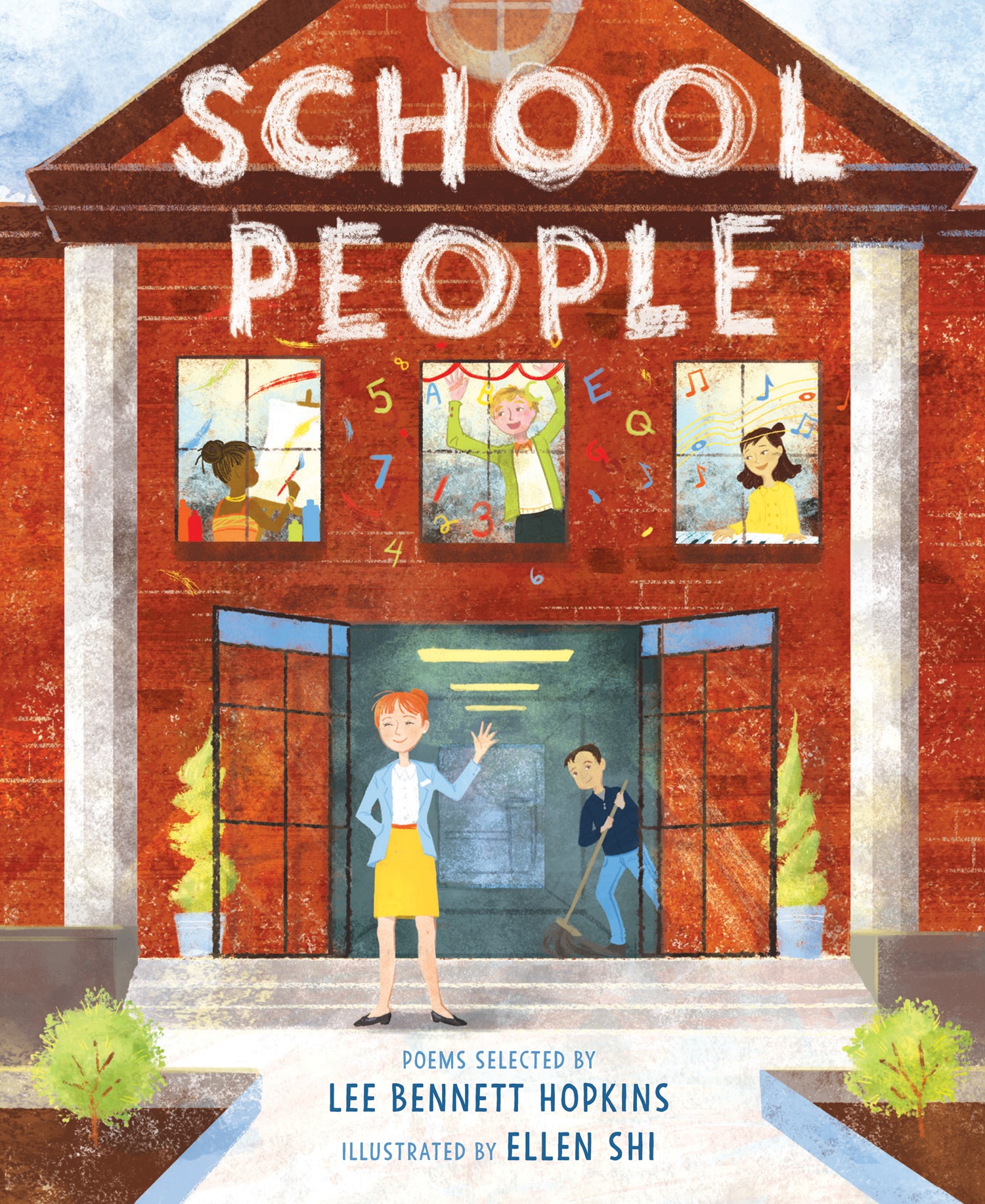




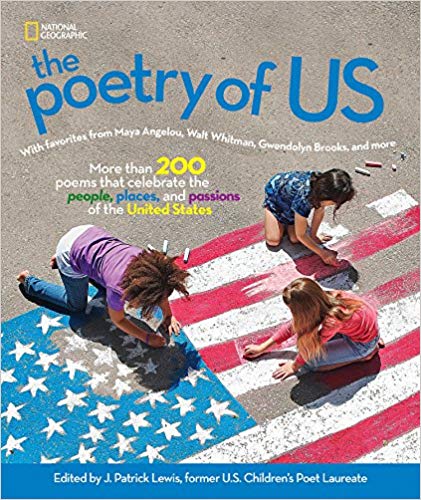



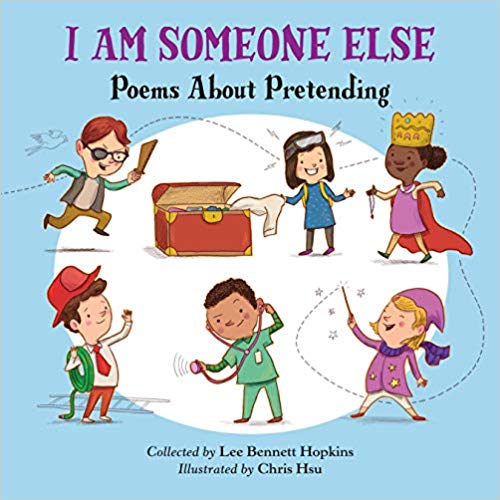
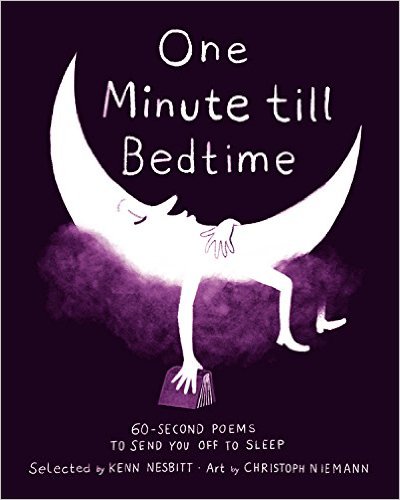


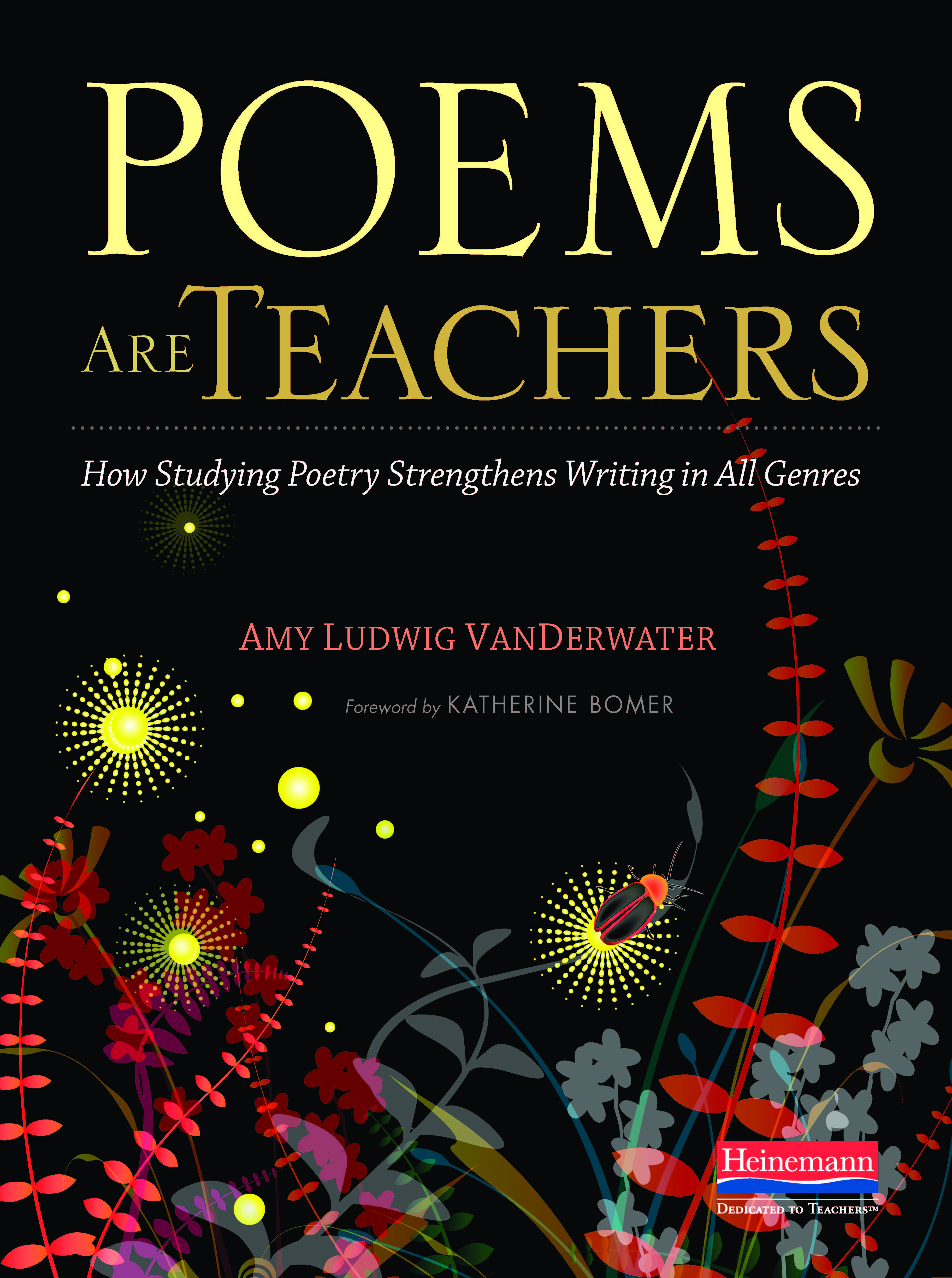
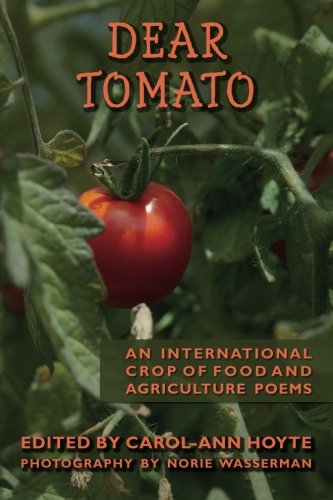
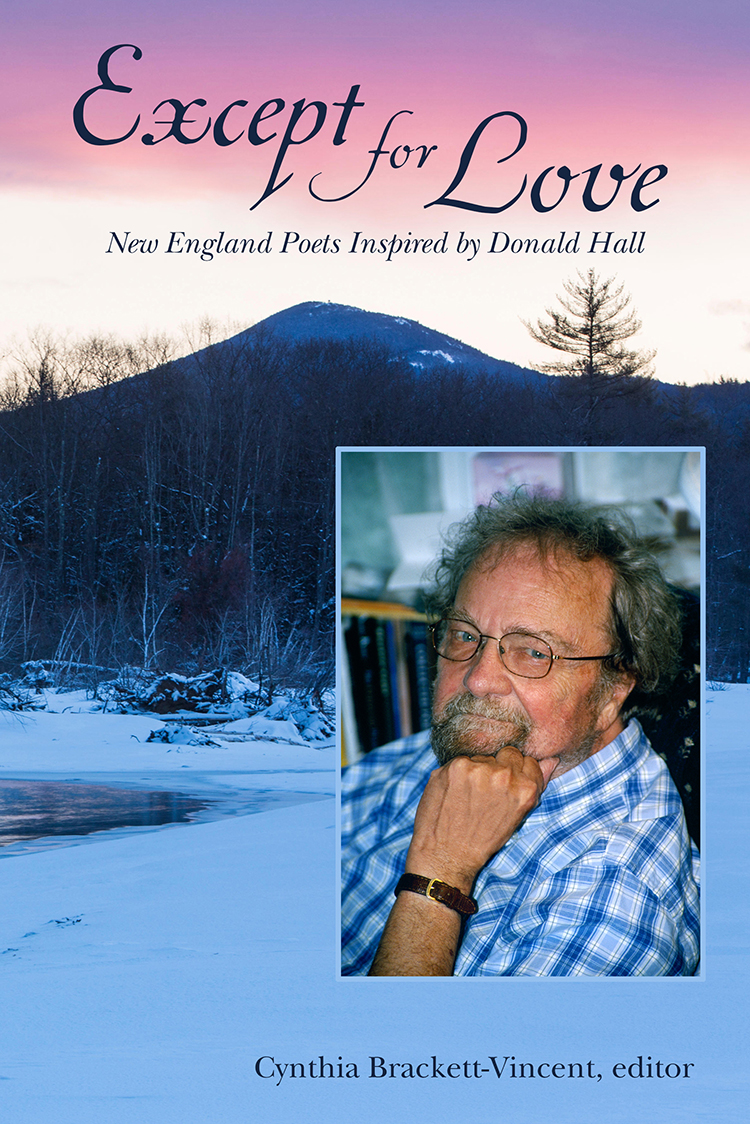
=====================================================
I’m now a part of the BOOKROO family!

Create an account to add books to wishlists and be notified of special deals and dates…create custom collections…and discover and follow your favorite authors & illustrators!
Find out more about BOOKROO here!
======================================================
I continue adding to my “Wit & Wordplay” videos ! These videos were created for parents and educators (along with their kids) to learn how to write poetry, appreciate it, and have fun with it. From alliteration and iambs to free verse and spine poetry, I’m pretty sure there’s something in these videos you’ll find surprising! You can view them all on my YouTube channel, and if you have young kids looking for something to keep busy with, I also have several downloadable activity sheets at my website.
=====================================================
Ordering personalized signed copies online? Oh, yes, you can!
You can purchase personally-signed copies of Flashlight Night, (Astra Young Readers, 2017), Don’t Ask a Dinosaur (Pow! Kids Books, 2018), and nearly EVERY book or anthology I’ve been part of!
Click any of the covers below to order!
Just click the cover of whichever book you want and send a comment to the good folks at MainStreet BookEnds in Warner, NH requesting my signature and to whom I should make it out. (alternatively, you can log onto my website and do the same thing) They’ll contact me, I’ll stop by and sign it, and then they’ll ship it! (Plus, you’ll be supporting your local bookseller – and won’t that make you feel good?)
======================================================
Thank you to everyone for your support!
FLASHLIGHT NIGHT:
- NY Public Library’s “100 Best Book for Kids 2017” AND “Staff Pick!”
- KIRKUS Starred review!
- Kansas NEA Reading Circle Recommended Books!
- “Best Reads of 2017,” Unleashing Readers
- Finalist, 2019 New Hampshire Literary Awards
- Positive reviews from Horn Book, School Library Connection, School Library Connection, Booklist, Publisher’s Weekly, and Shelf-Awareness!
DON’T ASK A DINOSAUR:
- “Rollicking rhyme!” – Booklist
- “A wild romp!” – Parenting NH Magazine
- “Cute…intriguing…4 out of 5 stars” – Tulsa Book Review
- “Rhythmic…funny and informative” – Unleashing Readers
======================================================
Did you like this post? Find something interesting elsewhere in this blog? I really won’t mind at all if you feel compelled to share it with your friends and followers!
To keep abreast of all my posts, please consider subscribing via the links up there on the right! (I usually only post once or twice a week – usually Tues. and Fri. – so you won’t be inundated with emails every day) . Also feel free to visit my voiceover website HERE, and you can also follow me via Twitter , Facebook, Instagram, Pinterest, and SoundCloud!








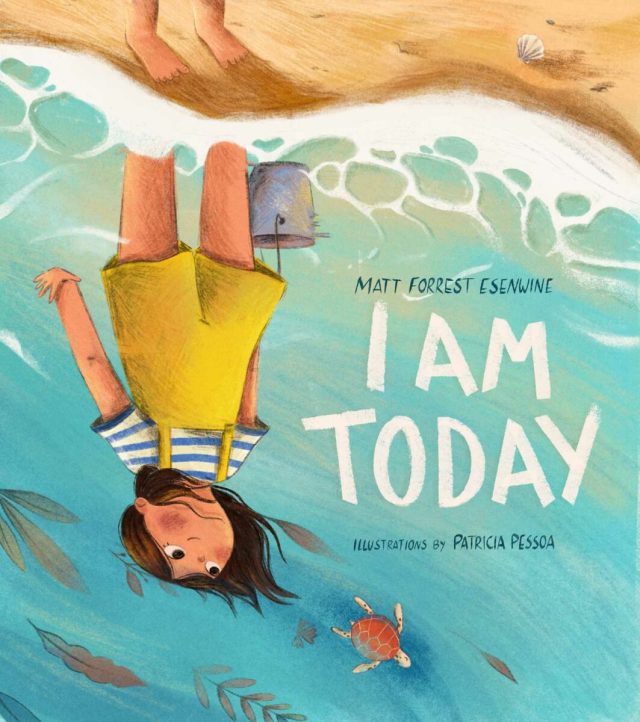

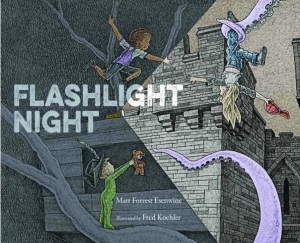




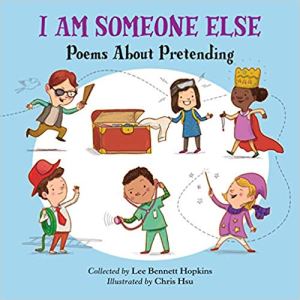



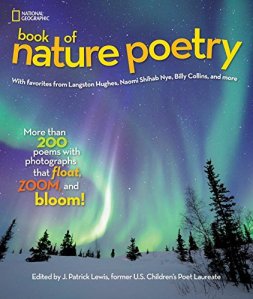


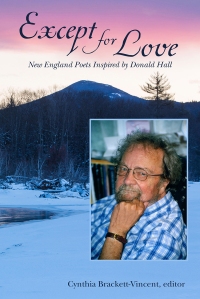






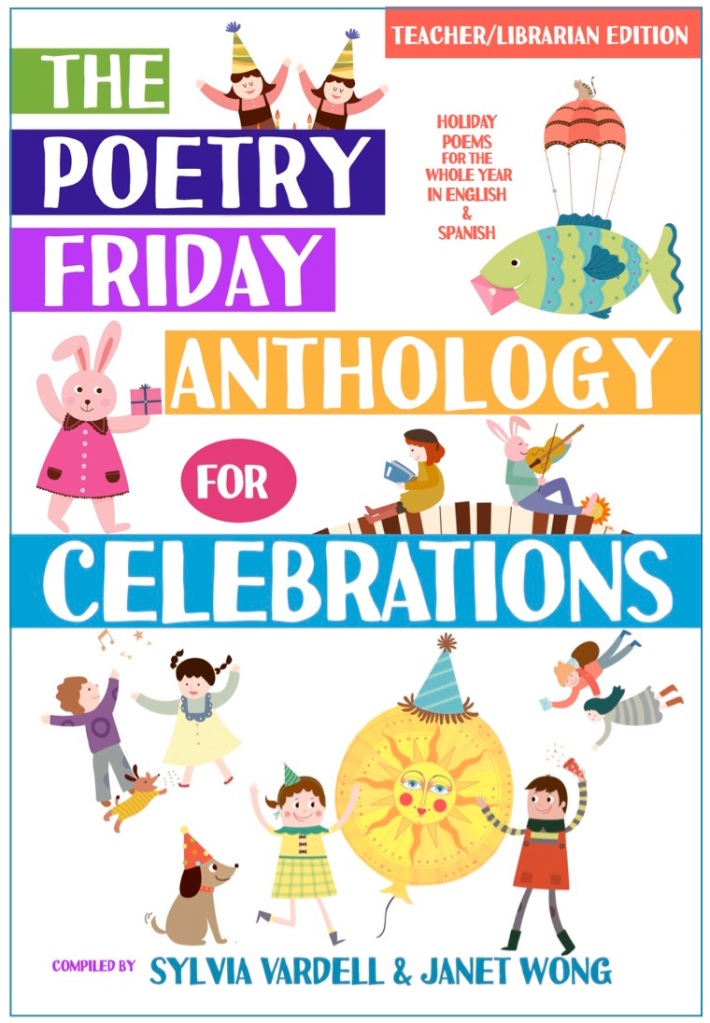

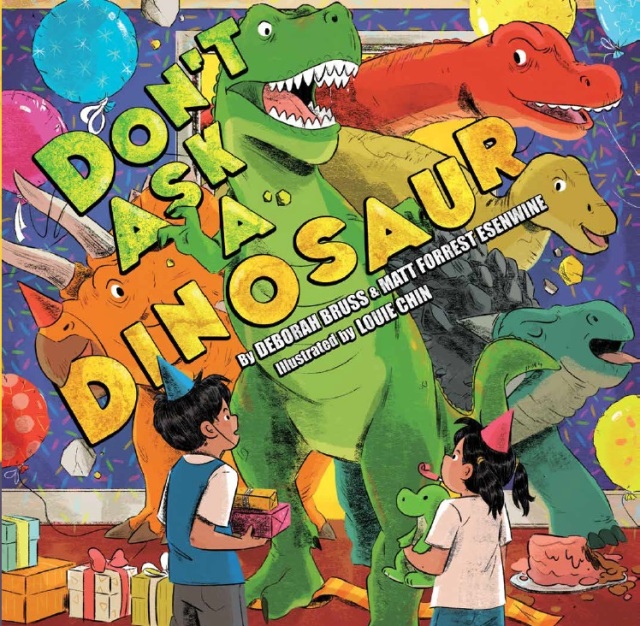
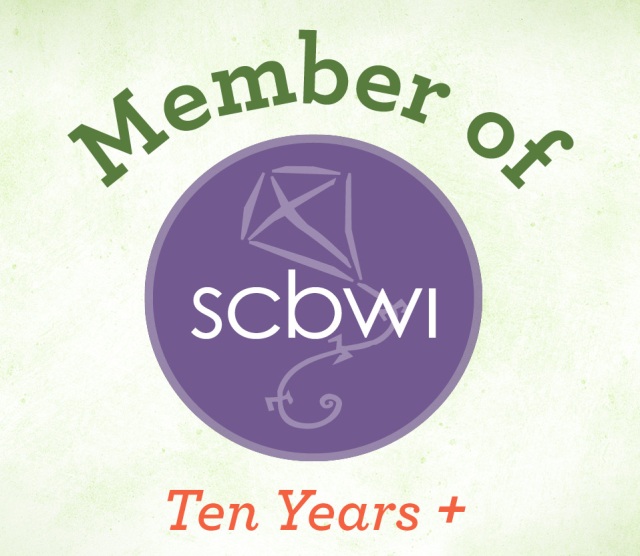
Wow, Matt! This post is chock full of goodness! The interview with Leslie was fascinating. I admire her process of creating scientifically accurate, but beautiful poetry! And, those illustrations! Just gorgeous! Congratulations to you on your Boston Globe shout-out, as well! Today, I am the contributor for a line in the 2022 Kidlit Progressive Poem! It is my first year participating, so I also wrote about my process somewhat. Thank you for hosting Poetry Friday! https://theapplesinmyorchard.com/2022/04/14/poetry-friday-my-first-year-in-the-progressive-poem/
LikeLike
Thanks, Carol – love your line! I’ve enjoyed seeing how the poem has been growing.
LikeLike
Thank you, Carol!
LikeLike
Thanks for this in-depth and wonderful interview with Leslie, Matt, her book sounds like a fascinating journey into the Serengeti–beautiful art too, and I’d love to be included in your book give-away drawing!
LikeLiked by 1 person
Thanks for visiting with us, Michelle!
LikeLike
Oops forgot to leave my link, I’m sharing another Bird Poem, on the Gray Catbird, for a bird poetry book I’m working on:
LikeLike
Thanks, Michelle! Looks like the link works – wonderful poem!
LikeLike
I’m looking forward to checking out this book, Matt. Thanks for hosting this week.
I have a Passover-themed post with a food poem from The Last Fifth Grade of Emerson Elementary (celebrating its 6th birthday!) and the recipe to go with it. YES… I am talking about Matzo Crack. Also recommending a new Passover Haggadah graphic novel. https://laurashovan.com/2022/04/happy-6th-birthday-to-the-last-fifth-grade/
LikeLike
Can’t believe it’s been 6 years since “5th grade” came out – congratulations, Laura!
LikeLike
I so admire your work, Laura!
LikeLike
Hooray! What a great post full of amazing information! Thanks so much for hosting this week. I am traveling so I’m in with a light post of “caption these.” Come on over and share a giggle at A Word Edgewise: https://awordedgewiselindamitchell.blogspot.com/
I also have a new star poem. ‘I Wish’ on the Star padlet: https://padlet.com/mitchellhubeimom/4bzbfu2cg5k7awk5
LikeLike
Thanks for stopping by, Linda!
LikeLike
Thanks for reading, Linda!
LikeLike
Thanks for the interesting in-depth interview with Leslie. Fascinating to learn about her process and backstory to the new book.The art looks gorgeous (I’m a big Becca Stadtlander fan) — please include me in the giveaway.:)
At Alphabet Soup I’m celebrating NPM with a special Emily Dickinson Tea that features several poems and three recipes from the new Emily Dickinson Cookbook:
https://jamarattigan.com/2022/04/15/poesy-receipts-three-cups-of-tea-with-miss-emily/(opens in a new tab)
Thanks so much for hosting this week!
LikeLiked by 1 person
Thanks, Jama! Eager to read your post!
LikeLike
Thank you, Jama!!
LikeLike
I’m a HUGE Becca Stadtlander fan!!
LikeLike
So great to see all the wonderful things Leslie is sharing with the world lately… thank you both for the thoughtful interview, especially the peeks into Serengeti! And thanks for hosting us all, Matt. (Congrats on your good news, too!) I’m in with some thoughts on pens (& some new pen nib earrings) –
http://www.robynhoodblack.com/blog/posts/40674
LikeLike
Loved your post, Robyn!
LikeLike
Thanks for this lovely shout-out, Robyn!!
LikeLike
Hi, Matt. Thank you for hosting today. I look forward to coming back to read the interview.
I’m in today with a spring poem at
https://lindakulptrout.blogspot.com/2022/04/each-spring-i-look-forward-to-seeing.html
LikeLike
Some beautiful images in your poem, Linda!
LikeLike
Hi Matt! Leslie’s poems are wonderful. I just love Superlative Birds. Thanks for the interview and for hosting! I’m sharing poems about poetry by Martín Espada https://tabathayeatts.blogspot.com/
LikeLike
Also I posted about the Summer Poem Swap, if anybody wants to join!
https://tabathayeatts.blogspot.com/2022/04/summer-poem-swap.html
LikeLike
Thanks, Tabatha – I really enjoyed Espada’s poems!
LikeLike
Thank you, Tabatha! I’m so glad you have enjoyed Superlative Birds!
LikeLike
Great interview, Matt. I am interviewing Sally Walker. https://www.jonerushmacculloch.com/blog/poetry-friday-week-15-interview-with-sally-walker
LikeLike
Loved the interview, Jone – I’m subbing an ms that’s similar-but-not, so it’s nice to see that books like this can be published!
LikeLike
This looks like a gorgeous and interesting book! Thanks for sharing it, Matt, and for hosting. My post will highlight the new picture book by Laura Purdie Salas,
entitled, WE BELONG.
LikeLike
Thanks, Janice. Do you have a link?
LikeLike
Sorry! http://janicescully.com
LikeLike
Thanks for checking us out, Janice!
LikeLike
Pingback: Laura Shovan » Happy 6th Birthday to The Last Fifth Grade!
Oh man, was this week’s post chock-full, Matt! The interview with Leslie is fabulous! I learned so much about process just reading how she developed SERENGETI. Yes, I would love to win that!! It sounds like a critical mentor text!
https://patriciajfranz.com/blog-poetry-friday-secrets/
LikeLiked by 1 person
Thanks, Patricia – well done!
LikeLike
Thank you for spending time with us, Patricia!
LikeLike
I’d love to have a copy of this new one by Leslie, Matt. I saw an IMAX film long ago about the Serengeti and still remember how awesome it seemed. And I love Superlative Birds! Also, congrats on being in the Boston Globe – wow! I’m sharing an imaginary tale of a poem today because of a photo I took. You’ll understand more when you read the post & see the pics. Thanks for hosting! https://www.teacherdance.org/2022/04/april-poetry-month-day-fifteen-poetry.html
LikeLiked by 1 person
I forgot to say how much I enjoyed reading Leslie’s interview & her process for the books she creates.
LikeLike
Thanks so much, Linda, looking forward to reading your post!
LikeLike
Thank you so much, Linda! I wonder if you saw the brand new Serengeti IMAX movie–it is SPECTACULAR! Thanks for mentioning Superlative Birds, too!
LikeLiked by 1 person
Just saw this. No, I haven’t seen this new IMAX but remember one from a long while ago. Such an amazing place on our earth!
LikeLike
Thank you for hosting with such a great interview of a poet I admire. Leslie’s work is so smart, and I really enjoyed this sneak peek into her proces and new book.
Over at The Poem Farm, I’m in with Day 15 of my Pick a Proverb Project. Today’s inspiration-proverb is, “You can catch more flies with honey than you can with vinegar.”
http://www.poemfarm.amylv.com/2022/04/pick-proverb-day-15.html
Happy Poetry Friday!
LikeLike
That’s a great concept for a series of poems, Amy!
LikeLike
Thank you for these wonderfully kind words, Amy! It was wonderful to meet you at TLA!
LikeLike
Thanks for hosting, Matt! What a great interview with Leslie Bulion. I’m intrigued by all of her titles! And congrats on your Globe nod – so cool. 🙂
At wee words for wee ones I’m continuing my NPM celebration with a brand new installment in my Smidgey Identity Crisis Poetry Video Series: Episode 3 – Fairy…Tale.
http://www.weewordsforweeones.com/2022/04/dogspeak-fairytale.html
LikeLike
Looking forward to checking it out, Bridget, thanks!
LikeLike
Thanks for visiting with us, Bridget!
LikeLike
Thank you for hosting and for the excellent interview! I was particularly interested in how Leslie Bulion structured her book–it sounds something like a picture book version of a verse novel.
I’d like to share a post from earlier this week when I added my line to the Progressive Poem. I discuss the line’s source and why I chose it, and I share some thoughts on the poem’s form and National Poetry Month. https://karinfisher-golton.com/2022/04/13/progressive-poem-national-poetry-month/
LikeLike
Thanks, Karin – good job with your line, very thoughtful!
LikeLike
That’s such an interesting way to imagine SERENGETI! I love that, Karin!
LikeLike
I do love a glimpse at the creative process of other writers – thanks for this interview! The book looks stunning and as someone who loves to write poems about nature, I’m grateful for the introduction to this title.
I’m talking turtles over at my blog today – especially endangered ones and how fostering can give them a head start in the wild. I’m highlighting a wonderful middle grade eco-mystery (by New England author Diana Renn), and sharing a haiku-esque found poem based on an interview she gave.
https://unexpectedintersections.blogspot.com/2022/04/poetry-friday-trouble-at-turtle-pond.html
Thanks for hosting today!
LikeLike
Thanks so much, Elisabeth, I’ll be sure to check out your link!
LikeLike
Thanks for *meeting* me on Matt’s post, Elisabeth!
LikeLike
Pingback: [poesy + receipts] Three Cups of Tea with Miss Emily | Jama's Alphabet Soup
Oh, I love Leslie’s poetry books. I will check out her latest!
Here’s the link to my post. I’m hoping others will join us for a webinar on collaboration with poets Irene Latham and Charles Waters: https://www.marcieatkins.com/2022/04/15/poetry-friday-an-invitation-to-learn-about-collaboration/
LikeLike
Thanks so much, Marcie!
LikeLike
Thank you for this wonderful shout-out, Marcie!
LikeLike
Pingback: Poetry Friday: Kangaroo Paw and Nasturtiums | Imagine the Possibilities
Wonderful interview, Matt! Thank you and I would love to have a chance to win a copy of Linda’s book.
Here’s my link for today where I share two poems from my April project:
https://imaginethepossibilitiesblog.wordpress.com/2022/04/15/poetry-friday-kangaroo-paw-and-nasturtiums/
LikeLiked by 1 person
Thanks, Rose – love the poems!
LikeLike
Pingback: National Poetry Month: For the Good of the Earth – Reading to the Core
Thank you for hosting today, Matt, and thank you for this amazing interview with Leslie! I love all her books and can’t wait to read her poems about the Serengeti. Today I’m sharing a Golden Shovel with more bad news (sorry!) about plastic. https://readingtothecore.com/2022/04/15/national-poetry-month-for-the-good-of-the-earth/
LikeLike
As if all the bad news wasn’t bad enough? 😉 Thanks,Catherine – looking forward to reading it!
LikeLike
Thank you, as always, Catherine! Your Golden Shovel is so beautiful and sad.
LikeLike
Thanks for the great interview, Matt. I have long admired Leslie’s work and would LOVE a copy of her newest book!
I’m in with poem #15 for My NPM Project, Hope in a Time of Climate Crisis. This one is titled, “Witnessing the Insect Apocalypse.” Not one of my more hopeful poems. It’s hard to witness the natural world fading away, but loving the world is the first step toward saving it. https://ayearofreading.org/2022/04/15/poetry-friday-witnessing-the-insect-apocalypse/
LikeLike
Perhaps not hopeful – but necessary, Mary Lee. Thanks for sharing.
LikeLike
Thank you, Mary Lee! Back at you!
LikeLike
Thanks, Matt, and congratulations, Leslie! I got this book as soon as it was released, to be book-friends with my DEAR WANDERING WILDEBEEST. 🙂 Today I have a (real) rabbit pic and a parrot poem about friendship. https://irenelatham.blogspot.com/2022/04/on-parrots-and-friendship-poem.html
LikeLike
Intriguing friendship! Looking forward to reading it, Irene.
LikeLike
SERENGETI – a long time coming! – has been honored to be book-friends (or book-ms friends!) with your remarkable DEAR WANDERING WILDEBEEST since your pub date, Irene!
LikeLike
Hello! Thank you for hosting PF and for such a great post! I haven’t shared in a while but thought I’d share today! I have a small poetry book review and a simple draft of a poem.
https://mothergooselibrarian.blogspot.com/
LikeLike
Thank you, Amy!
LikeLike
Your interviews are always so thorough and interesting, Matt. Thank you to both you and Leslie for your efforts. SERENGETI sounds amazing and looks exquisite—congratulations, Leslie! We’re musing about wind at Today’s Little Ditty—filling the inspirational well with an excerpt from a Lucille Clifton poem, a video about Anthony Howe’s kinetic sculptures, and a song by Akeboshi. https://michellehbarnes.blogspot.com/2022/04/filling-well-lucille-clifton-anthony.html
LikeLike
PS. Also a big congrats to you, Matt, for your mention in the Globe!
LikeLike
Oh, thank you! It was a small nod, but quite unexpected!
LikeLike
Thank you so much, Michelle, I appreciate that. Wow, sounds like you’ve got a lot going on today! Looking forward to reading your post.
LikeLike
Thank you so much, Michelle!
LikeLike
Hi, Matt! Thanks for hosting. I look forward to reading your interview with Leslie in depth later today. I’m continuing my climate poetry responses to ALL WE CAN SAVE today with a detour into Narnia by way of BRAIDING SWEETGRASS. Yeah, it’s never simple with me. https://myjuicylittleuniverse.blogspot.com/2022/04/npm-15-upper-case-for-being.html
LikeLike
Loved it, Heidi! Thanks for sharing.
LikeLike
Thanks for hosting, Matt–I’ll be coming back this weekend to read your interview with Leslie–such a terrific poet! I’m in with a short poem about harsh words you can’t take back (which grew out of an N+7 exercise) at https://www.laurasalas.com/poems-for-teachers/day15-npm2022-mean-words-poetry-friday/
LikeLike
Looking forward to reading this, Laura – thanks!
LikeLike
Pingback: NPM2022 Day 15: Mean Words
Pingback: Woods Walk and a young poet’s debut #Pathways #NPM #NaPoWriMo #NationalPoetryMonth #PoetryFriday – Wondering and Wandering
Yeah, Matt and Leslie! Serengeti sounds amazing, and I’d love to be included in your drawing. Today I have another poem for my NPM project, Pathways, and the debut of another Kindergarten poet. Huzzah! Thanks for hosting, Matt! https://wonderingandwondering.wordpress.com/2022/04/15/woods-walk-and-a-young-poets-debut-pathways-npm-napowrimo-nationalpoetrymonth-poetryfriday/
LikeLiked by 1 person
Thanks, Christie – I enjoyed both poems you shared!
LikeLiked by 1 person
Thanks, Matt! Cheers!
LikeLike
Thanks for reading our interview, Christie!
LikeLike
OMG, you had me at “gazelles nibble gnu-mown grass”! I can’t wait to get my hands on this book. And for my very first foray into Poetry Friday, here is my link https://marilynrgarcia.com/whats-new/
LikeLiked by 1 person
Isn’t that a great line?? I loved it. And nice to meet you – so glad you’ve jioned the PF community!
LikeLike
I’m so glad you enjoyed that line, Marilyn! Thanks for reading!
LikeLike
Thanks so much for this interview and for hosting today’s roundup, Matt.
My co-blogger Zeena posts from Cairo, Egypt today and shares the poem “River Nile” by Egyptian poet omar ibrahim. She also provides a sneak peak at her forthcoming picture book, Egyptian Lullaby.
https://www.teachingauthors.com/2022/04/and-nile-flows-from-poem-to-picture.html
LikeLike
Ooh, Egyptian poetry! Looking foward to reading it, Carmela!
LikeLiked by 1 person
Thanks for reading, Carmela!
LikeLike
Hi Matt! Thanks so much for this great interview. I always learn from the stories of authors. My post today is about the necessary confusion of renovation. https://kceastlund.blogspot.com/2022/04/disarray.html
LikeLike
We’ve been renovating, slowly, for the past couple of years, so I know how you feel!
LikeLike
Thanks for reading Matt’s interview with me, Karen!
LikeLike
Thanks for hosting and sharing this great interview, Matt! Congrats on the Boston Globe mention! This week I’m sharing a board book poem for the littlest ones: Butterflies Soar. https://asuen.com/butterflies-soar-board-book/
LikeLike
Thanks, Ana!
LikeLike
Thanks for visiting with us, Anastasia!
LikeLike
HUGE fan of Leslie’s poetry, and this one sounds equally wonderful and I would love to add it to my collection of her works! I love her attention to craft and form. I hadn’t heard of utendis–what a perfect way to complement the Serengeti setting. Congrats, Leslie. And congrats on the Globe mention, Matt (my book Whoo-Ku Haiku was listed there too!)
LikeLike
Yes, I saw that! Congratulations, Maria. You’re originally from NH, aren’t you? The Granite State is really representing here, eh? Thanks for stopping by!
LikeLike
Fan-ing back at you, Maria!
LikeLike
Thank you for rounding up. I’m in with “Rondeau” by Jessie Redmon Fauset, a poet of the Harlem Renaissance.
https://chickenspaghetti.typepad.com/chicken_spaghetti/2022/04/april-poem.html
LikeLike
Thank you, Susan!
LikeLike
Thank you for hosting! I’m running late today, but here’s my post, finally: https://thereisnosuchthingasagodforsakentown.blogspot.com/2022/04/poetry-friday-npm-day-15.html
LikeLike
Better late than never! Thanks, Ruth.
LikeLike
Matt, thank you for the round up today. I enjoyed reading the interview with Leslie and thinking a lot about the Serengeti. I’m intrigued by the poetry form she used and look forward to trying it. I would love to have a chance to win the drawing for her book, too. Thanks! My Good Friday poem post is here, https://mrsdkrebs.edublogs.org/2022/04/15/poetry-friday-and-good-friday/
LikeLiked by 1 person
Thanks, Denise – and Happy Easter!
LikeLike
Thanks for reading our interview, Denise!
LikeLike
Wow! So much poetry goodness here.
I’m in today with another entry in my NPM project of writing poems in Japanese poetic forms to primary sources.
https://missrumphiuseffect.blogspot.com/2022/04/poetry-friday-npm-2022-day-15.html?m=1
LikeLike
Thanks for stopping by, Tricia – I enjoyed your senryu!
LikeLike
Matt, this was a busy day and I am still going. I will circle back to add my blog post. It is only half-way completed.
LikeLike
No worries, Carol! I’ll be here. 😉
LikeLike
Matt, I am finally sneaking in during the last hour of Poetry Friday. Your blog post was so interesting. I have followed Leslie for at least a decade. Her new book sounds like such a mix of wonder, awe, and information blended into a poetic experience for young readers and their family and teachers. Thanks for the giveaway and the poem challenge. I will write my poem and send it to you. Thanks also for hosting and waiting for my PF blog post at https://beyondliteracylink.blogspot.com/2022/04/unpredictable-spring.html. I am offering a few poems for my springtime National Poetry Month project, “Poetryiscious Gallery”. Do you have a spring image poem that you would like to offer? I always love to have one of your poems in each gallery.
LikeLike
Thanks so much, Carol – no worries, I’m happy to add you to our extensive list! (and will be eager to see how you respond to the #PoetryCUBED challenge!) I’ll see what I have to offer and email you; thanks for asking.I’m now off to read your post! 😉
LikeLike
Hi Carol! Thanks for visiting with us in Matt’s interview, and for all of the work you do!
LikeLike
Please add my link to Salt City Verse. I wrote about We Belong by Laura Purdie Salas. Thank you.
http://janicescully.com.
LikeLike
Thanks, Janice. I’m sorry, I’m just seeing this now as I’ve been offline most of the weekend, but am adding you within a few minutes!
LikeLike
To Leslie and Matt–yes! My favorite kind of interview, where you really get some details about process and craft. I was especially interested in the different treatments Leslie gives her “one big idea”s. I’d love to have a copy of this book with its thoughtfully translated utendi stanzas. Thanks!
LikeLiked by 1 person
Thank you for visiting with us, Heidi! I love reading about process, too!
LikeLike
What a challenge–an entire ecosystem and a new-to-the-poet poetic form. I love the gnu-mown grass. This looks stunning :>)
LikeLike
Isn’t it an amazing book??
LikeLike
Thanks, Matt!!!
LikeLiked by 1 person
Thank you, Laura! Congrats on all of your work in the world!
LikeLike
Pingback: Poetry Friday: #PoetryCUBED writing prompt enters its 3rd week! – Radio, Rhythm & Rhyme